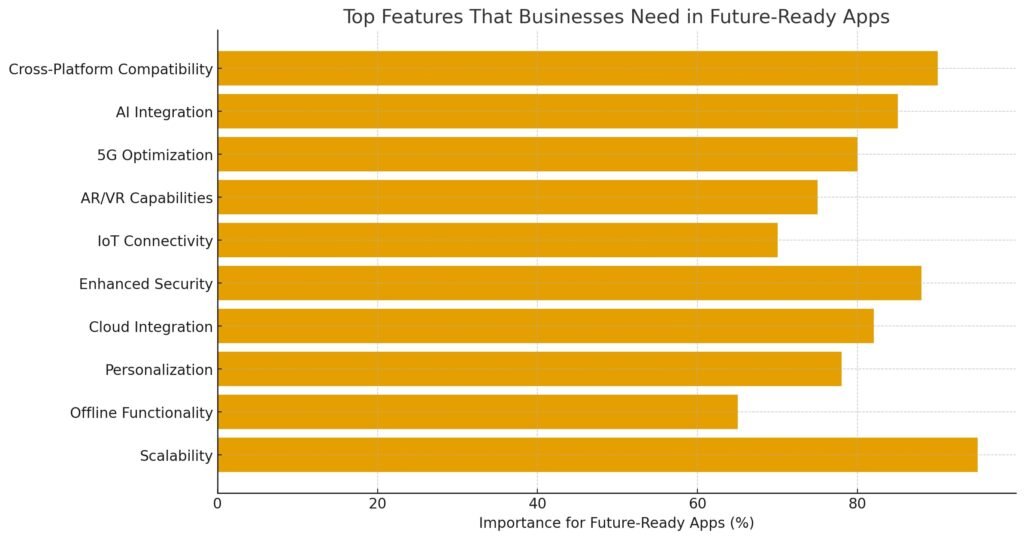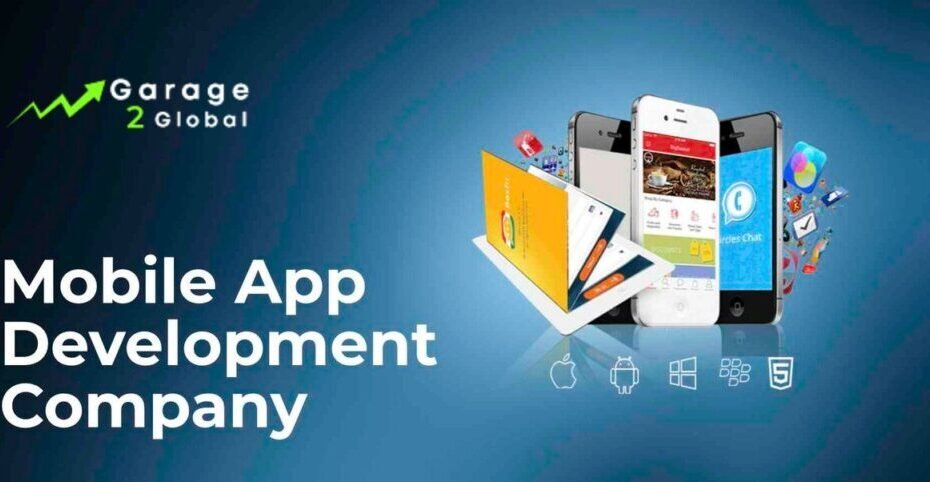Mobile apps have become the backbone of modern businesses. They are no longer just “nice to have”—they are often the main channel through which companies connect with customers, sell products, and manage operations. Whether it’s booking a cab, ordering groceries, or tracking a fitness routine, mobile apps shape the way we live and work.
But here’s the challenge: building an app that works well today is one thing; building one that can handle tomorrow’s growth is another. That’s where the mobile app developers at Garage2Global come into the picture. Known for their forward-looking approach, they specialize in creating apps that don’t just work but scale—apps built to handle 2025 and beyond.
Why Scalability Matters More Than Ever
Think about a festive season sale on an e-commerce app. Thousands of users log in at once, rushing to grab deals. If the app slows down or crashes, customers leave, and the business loses out. This is why scalability has become one of the biggest priorities in app development.
In simple words, scalability means an app can grow with your business. If you have 1,000 users today and 100,000 users next year, the app should still run smoothly. The mobile app developers at Garage2Global make this a reality by designing apps with growth built into their foundation.
Scalable Apps vs. Non-Scalable Apps — Impact on User Growth

What Makes Garage2Global Different
There are plenty of mobile app development firms out there. But Garage2Global stands out because they don’t just deliver a product and move on. Instead, they work as a technology partner, helping clients think about what comes next.
For example, let’s say a startup approaches them to build a food delivery app. Instead of stopping at the basic features—like menus and payments—the team asks bigger questions:
- What if this app expands to multiple cities?
- How will you handle delivery tracking and logistics?
- What security features will you need when the user base grows?
By thinking ahead, they ensure businesses aren’t just ready for launch—they’re ready for scale.
The People Behind the Apps
The mobile app developers at Garage2Global are a diverse team of coders, designers, and problem-solvers. Some focus on backend development, making sure apps are reliable and secure. Others specialize in UI/UX design, creating apps that are simple and enjoyable to use.
What makes the team especially strong is their ability to adopt new technology quickly. They experiment with AI to make apps smarter, use blockchain for secure transactions, and rely on cloud technology to ensure apps can scale. This mix of creativity and technical strength is why Garage2Global apps stand the test of time.

Building Apps for the Future
Garage2Global is not just solving problems of today—it’s preparing for what’s next. Here are some ways their developers are building future-ready apps:
- AI-driven personalization – Apps that learn user behavior and give recommendations.
- Cloud-first design – Apps that can scale across global markets with ease.
- Cross-platform development – One codebase that works for both iOS and Android.
- Stronger cybersecurity – Protecting apps from growing cyber threats.
Take the example of a financial company that wanted a mobile banking app. Garage2Global didn’t just build a simple money-transfer tool. They added AI-based fraud detection, cloud hosting for millions of secure logins, and encryption to protect sensitive data. That’s the difference between a regular app and a future-proof app.
Top Features That Businesses Need in Future-Ready App.

Success Stories That Prove the Point
Real success stories bring this to life. A retail brand once approached Garage2Global to create an online shopping app. At first, it only had a few thousand users. But within a year, the number shot up to over a million. Thanks to the scalable design, the app kept running smoothly—even during sales events where most apps would slow down.
Another client in healthcare wanted an app to help patients book appointments. Garage2Global built a solution that also included telemedicine features. During the pandemic, when patient demand spiked, the app handled the load with ease. These examples show why their developers are trusted across industries like retail, finance, healthcare, and logistics.
A Focus on User Experience
An app may have all the latest technology, but if users find it confusing, they won’t use it. That’s why the mobile app developers at Garage2Global always focus on design and user experience.
Think of apps like Instagram or WhatsApp. People love them because they’re simple. Garage2Global applies the same idea—clean layouts, easy navigation, and features that feel natural. They even test apps with real users before launch, so businesses know the app works in real life, not just on paper.
Mockup of a clean, modern Garage2Global app interface.

Long-Term Partnerships, Not One-Time Projects
One thing that sets Garage2Global apart is how they treat app development as a journey. They don’t stop at launch. They keep working with clients, adding new features, updating technology, and optimizing performance.
For example, if AI-powered recommendations become important in retail, they can update the app without starting from scratch. If hosting costs rise, they adjust cloud infrastructure to save money. This long-term partnership means businesses don’t just get an app—they get a technology roadmap.
Thinking Globally
Although Garage2Global works closely with local clients, their approach is global. They study what works for successful apps worldwide and bring those best practices into their projects. For example, they might adapt ideas from U.S. ride-hailing apps, African payment systems, or Chinese e-commerce platforms to create better solutions for their clients.
This global outlook ensures that businesses partnering with Garage2Global are ready not just for regional competition, but for international growth as well.
The Road Ahead
Looking forward, the role of mobile apps will only grow. With 5G networks rolling out, faster connections will allow for real-time app experiences. Augmented reality will make shopping more immersive, and the Internet of Things will connect apps to everyday devices.
The mobile app developers at Garage2Global are already preparing for this. They’re experimenting with AR shopping experiences, IoT-enabled smart home apps, and real-time 5G-driven applications. For businesses, this means working with a partner who is already building for tomorrow.
Future Trends in Mobile Apps: 2025 and Beyond (5G, AR, IoT, AI)
![Future Trends in Mobile Apps: 2025 and Beyond (5G, AR, IoT, AI)]\](https://techthrilled.com/wp-content/uploads/2025/09/image-3-683x1024.png)
Conclusion
At the end of the day, the mobile app developers at Garage2Global are not just writing code—they’re helping businesses grow, adapt, and thrive in a fast-changing digital world. With their mix of technical expertise, user-first design, and future-focused mindset, they’ve become one of the most reliable teams for companies that want scalable apps built for today and tomorrow.
As 2025 unfolds, businesses that work with Garage2Global will be the ones staying ahead, turning ambitious ideas into digital realities that can scale with confidence.
Frequently Asked Questions (FAQ)
1. What are the biggest mobile app trends for 2025?
The most impactful trends shaping mobile apps in 2025 include 5G connectivity, Augmented Reality (AR), Artificial Intelligence (AI), Internet of Things (IoT) integration, and cross-platform development. These innovations are making apps faster, smarter, and more personalized.
2. How will 5G affect mobile app development?
5G brings ultra-fast speeds, low latency, and better connectivity, allowing apps to handle real-time video streaming, cloud gaming, IoT device integration, and immersive AR/VR experiences. This will transform industries like healthcare, education, and entertainment.
3. Why is Augmented Reality (AR) important for apps in 2025?
AR enhances user engagement by overlaying digital elements onto the real world. From virtual try-ons in e-commerce to immersive training simulations, AR-based apps are set to dominate industries like retail, gaming, real estate, and healthcare.
4. What role does Artificial Intelligence (AI) play in mobile apps?
AI powers personalization, voice assistants, predictive analytics, and chatbots. In 2025, AI will help apps deliver smarter recommendations, improve cybersecurity, and optimize user experiences in sectors like finance, healthcare, and entertainment.
5. How are IoT and mobile apps connected?
IoT allows apps to control and communicate with smart devices such as wearables, home automation systems, and industrial machines. By 2025, IoT-powered apps will be central to smart cities, connected cars, and health monitoring solutions.
6. What industries will benefit the most from these app trends?
- Healthcare (remote patient monitoring, telemedicine)
- E-commerce (personalized shopping, AR try-ons)
- Gaming & Entertainment (cloud gaming, AR/VR)
- Education (interactive learning, AI tutors)
- Automotive (connected cars, smart navigation)
7. Will cross-platform app development become more popular?
Yes. With businesses aiming for cost efficiency and wider reach, tools like Flutter, React Native, and Xamarin will gain momentum in 2025, allowing developers to build apps that run seamlessly across iOS, Android, and web.
8. How can businesses prepare for these future app trends?
Businesses should:
- Adopt 5G-ready app strategies
- Invest in AR and AI integrations
- Prioritize cross-platform frameworks
- Focus on cybersecurity for IoT apps
- Ensure scalability to support user growth
